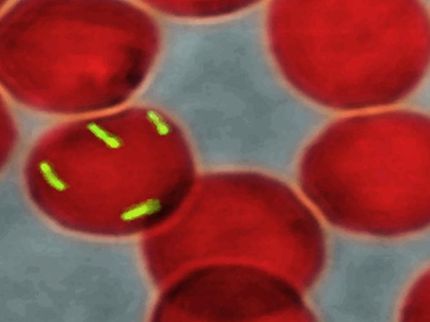Plastic antibody works in first tests in living animals
Advertisement
Scientists are reporting the first evidence that a plastic antibody — an artificial version of the proteins produced by the body's immune system — works in the bloodstream of a living animal. The discovery, they suggest in a report in the Journal of the American Chemical Society, is an advance toward medical use of simple plastic particles custom tailored to fight an array of troublesome "antigens." Those antigens include everything from disease-causing viruses and bacteria to the troublesome proteins that cause allergic reactions to plant pollen, house dust, certain foods, poison ivy, bee stings and other substances.
In the report, Kenneth Shea, Yu Hosino, and colleagues from the University of California - Irvine refer to previous research in which they developed a method for making plastic nanoparticles, barely 1/50,000th the width of a human hair, that mimic natural antibodies in their ability to latch onto an antigen. That antigen was melittin, the main toxin in bee venom. They make the antibody with molecular imprinting, a process similar to leaving a footprint in wet concrete. The scientists mixed melittin with small molecules called monomers, and then started a chemical reaction that links those building blocks into long chains, and makes them solidify. When the plastic dots hardened, the researchers leached the poison out. That left the nanoparticles with tiny toxin-shaped craters.
Their new research, together with Naoto Oku's group of the University Shizuoka Japan, established that the plastic melittin antibodies worked like natural antibodies. The scientists gave lab mice lethal injections of melittin, which breaks open and kills cells. Animals that then immediately received an injection of the melittin-targeting plastic antibody showed a significantly higher survival rate than those that did not receive the nanoparticles. Such nanoparticles could be fabricated for a variety of targets, Shea says. "This opens the door to serious consideration for these nanoparticles in all applications where antibodies are used," he adds.
Other news from the department science
Most read news
More news from our other portals
See the theme worlds for related content
Topic world Antibodies
Antibodies are specialized molecules of our immune system that can specifically recognize and neutralize pathogens or foreign substances. Antibody research in biotech and pharma has recognized this natural defense potential and is working intensively to make it therapeutically useful. From monoclonal antibodies used against cancer or autoimmune diseases to antibody-drug conjugates that specifically transport drugs to disease cells - the possibilities are enormous

Topic world Antibodies
Antibodies are specialized molecules of our immune system that can specifically recognize and neutralize pathogens or foreign substances. Antibody research in biotech and pharma has recognized this natural defense potential and is working intensively to make it therapeutically useful. From monoclonal antibodies used against cancer or autoimmune diseases to antibody-drug conjugates that specifically transport drugs to disease cells - the possibilities are enormous
























































